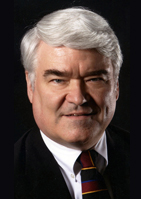The Texas Supreme Court ruled Friday that the City of Laredo’s plastic-bag-ban ordinance is invalid and cannot be enforced because it directly conflicts with a superseding state law passed in 2015.
Two of the justices, however, made it clear that they want the Texas Legislature to reconsider its position for the sake of the environment.
The key question in the case is whether the Texas Solid Waste Disposal Act, which was passed by the Texas Legislature in 2015, prohibits local governments from enacting ordinances limiting or prohibiting grocery stores and other retailers from giving customers plastic bags for solid waste management, environmental or economic reasons.
Laredo city officials, as part of a “trash free strategy,” passed an ordinance in 2014 that made it a Class C misdemeanor for businesses to provide or sell plastic bags to customers. Violators could face fines of up to $2,000 per violation. Several other Texas cities did the same.
A year later, the Texas Legislature passed the TSWDA in an effort to invalidate the local efforts.

“Both sides of the debate and the many amici curiae who have weighed in assert public-policy arguments raising economic, environmental, and uniformity concerns. But those arguments are not ours to resolve,” Chief Justice Nathan Hecht wrote for the unanimous court. “The wisdom or expediency of the law is the Legislature’s prerogative, not ours. We must take statutes as they are written, and the one before us is written quite clearly.
“The Texas Constitution states that city ordinances cannot conflict with state law,” Chief Justice Hecht said in a 19-page opinion.
In a concurring opinion, Justice Eva Guzman agreed with the majority’s legal finding, but she said the issue involves “complex public policy determinations have important ramifications for the environmental legacy the next generation will inherit.”
“Allowing plastic debris — bags, Styrofoam cups, water bottles, and similar pollutants — to migrate unchecked into the environment carries grave consequences that must not be ignored,” Justice Guzman said in a 10-page opinion that was joined by Justice Debra Lehrmann.
“As a society, we are at the point where complacency has become complicity,” Justice Guzman wrote. “Plastic is a miracle material with many beneficial purposes, but the speed at which plastic refuse is proliferating is taxing our waste-management capacities. Improperly discarded plastics have become a scourge on the environment and an economic drain. And due to their buoyancy and propensity for wind-blown incursion, single-use plastic bags—the target of the Laredo ordinance—are a particularly pernicious form of this non-biodegradable menace.
“Texas ranchers, fishermen, and aquatic conservationists have witnessed first-hand the deleterious effects of single-use plastic bags on livestock, turtles, fish, birds, and other indigenous wildlife, who often become ensnared in plastic refuse and frequently mistake it for food,” she said. “The consequences are horrific, and pending affirmative legislative action, many amici have weighed in to champion local efforts to combat the growing problem of single-use plastics.
“Standing idle in the face of an ongoing assault on our delicate ecosystem will not forestall a day of environmental reckoning — it will invite one,” Justice Guzman wrote.
In his majority opinion, Chief Justice Hecht noted the ongoing friction between local governments and state leaders.
Legal analysts say that the politics of the issue has dramatically evolved during the past decade. For many years, conservative Republicans zealously advocated for more local governmental control by cities and counties and less power in the hands of state and federal governments.
But now that many of those same Republicans have control of state and federal branches of government, they are vigorously using their authority to dictate their agenda on local governments, according to legal experts.
“The roving, roiling debate over local control of public affairs has not, with increased age, lost any of its vigor,” Chief Justice Hecht wrote. “From public education to immigration policy to fracking to shopping bags, the sides are always deeply divided.
“Judges have no dog in this fight,” he wrote. “Our duty is to apply the rules fairly and equally to both sides.”
